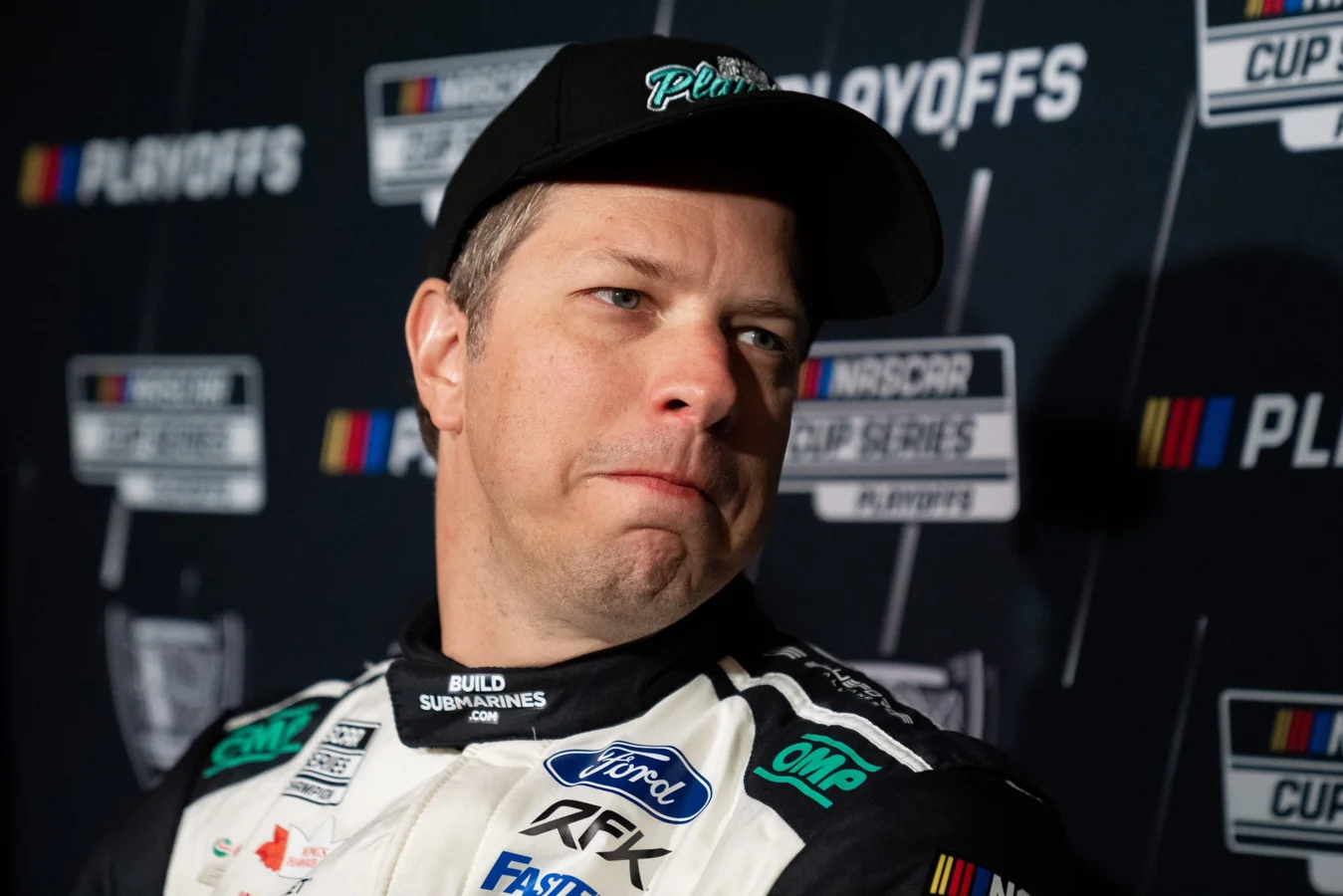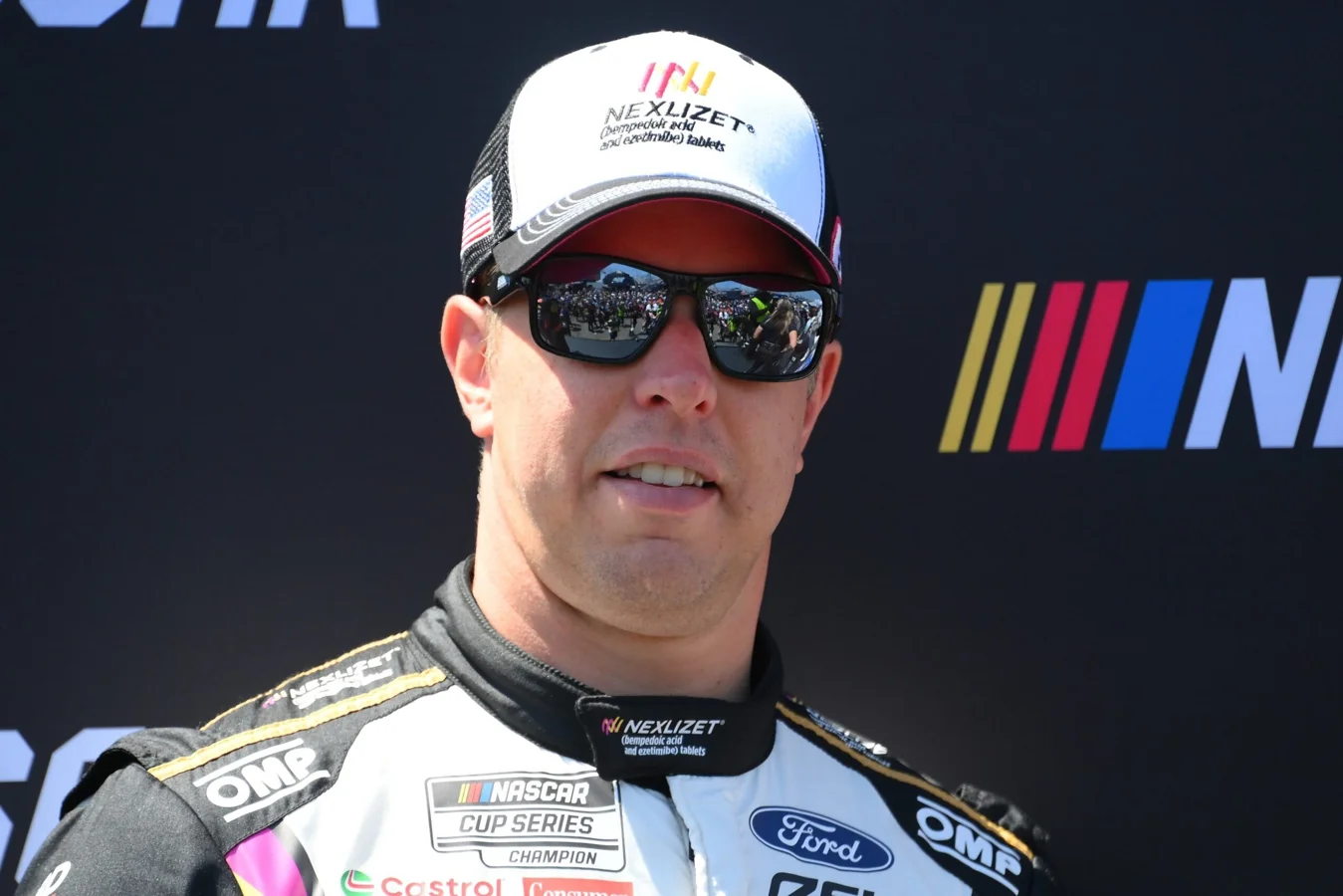Brad Keselowski, the 2012 NASCAR Cup Series champion and current RFK Racing driver-owner, has made headlines by strongly criticizing the current NASCAR playoffs format, calling it “unhealthy” for the sport in a recent interview. As debates around the NASCAR playoffs intensify in the highly competitive Next-Gen era, Keselowski’s perspective fuels ongoing conversations about the future of the sport. His Brad Keselowski NASCAR playoffs criticism highlights major issues that many believe need urgent addressing.
Keselowski Voices Concern Over Post-Season Format
Since NASCAR first introduced its playoffs system in 2004, the method for determining its Cup Series champion has been a frequent topic of debate among teams, drivers, and fans. Keselowski, one of the era’s most influential figures, added his voice to the discussion during a detailed exchange with journalist Jeff Gluck. He expressed that the current playoffs, which reward late-season “clutch” performances over full-year consistency, are problematic and diminishing the sport’s competitive meaning.
Second, the whole playoff thing has to go away. The nuance of having 10 races that are more important than 20-some others is very unhealthy for the sport.
Brad Keselowski said via Jeff Gluck of The Athletic.
Keselowski’s issue centers on the imbalance created by singling out ten playoff races as more valuable than the rest of the season. He argues this distinction is not only unfair to the tracks and races outside the post-season, but also pits NASCAR head-to-head against other major sporting events, particularly in the fall television window.

It’s demeaning to the other tracks and races. And unfortunately, those 10 races that are supposed to mean more are in direct competition with other sports. It muddies the water. It’s not working for the sport. Those two would be 1A and 1B.
Brad Keselowski added.
According to Keselowski, this rivalry for attention during the playoffs dilutes the overall importance of regular season races and adds to the confusion for both fans and stakeholders. He believes the playoff model is not working for NASCAR and urges for its removal before further damage occurs.
Keselowski Suggests Changes Needed for Track Viability
In his extensive conversation with Gluck, Keselowski didn’t limit his criticism to just the postseason. He also called attention to the business model sustaining NASCAR venues, warning of an unsustainable status quo. The RFK Racing owner emphasized that tracks heavily depend on revenue from NASCAR’s $1.1 billion media deal, with few alternative income sources. This dependence, he explained, is hurting the long-term growth of the sport and limits the ability to enhance race-day experiences for fans.
The first one is the tracks, in general, need to find more ways to generate revenue outside of NASCAR. A lot of these tracks you go to, if you come to them on a Tuesday, three weeks before or after the race, there’s like three people that work there. There’s nobody around. …
Brad Keselowski said.
Keselowski’s point highlights the challenge many tracks face: without regular events or diversified business streams, venues remain largely empty for most of the year. He points out that the overwhelming majority of their funds stem from television rights, with very limited capital left to reinvest in infrastructure, fan amenities, or innovative experiences that could draw larger, more engaged crowds.
The tracks aren’t able to raise enough capital to invest in the fan experience, or they’re significantly subsidized out of the media rights (TV deal) to make their business sustainable. That creates a series of dominoes downstream, whether it be the fan experience that doesn’t rival other sports or draining cash flow that potentially could be coming to the teams and enabling things like testing. …
Brad Keselowski added.
This financial model, Keselowski warns, creates a “domino effect”—wherein the lack of investment opportunity causes inferior fan experiences, reduces teams’ ability to innovate, and leaves venues vulnerable to business downturns.
The Broader Impact on Competitors and Tracks
Keselowski’s comments further underscore a growing sense of frustration and urgency within the NASCAR community. He argues that by making only a handful of races matter most, NASCAR not only undermines the significance of its other events but also limits the ability for teams, sponsors, and partners to fully maximize their involvement across the season. Kevin Harvick, Joey Logano, and other high-profile figures have at times weighed in on similar concerns, reflecting an undercurrent of discontent among competitors.
NASCAR’s playoff model, by placing so much emphasis on the post-season, can result in smaller crowds and reduced media interest for non-playoff races. The tension grows as playoff races clash with other major sports broadcasts each fall, such as the NFL and Major League Baseball, making it even harder for NASCAR to capture national attention. These challenges, highlighted by Keselowski as well as other racing veterans, signal a need for broad structural changes—both in the format and in track operations—to sustain fan interest and financial well-being for all parties involved.
The Push for Broader Reform in NASCAR
Alongside his criticism of the playoff format and track business model, Keselowski has advocated for evolving the sport through diverse means, including the introduction of a new Original Equipment Manufacturer (OEM) in the Cup Series. He believes that both the sanctioning body and its teams must come together to tackle these pressing issues, rather than operate in isolation or focus solely on short-term gains. Changes such as improving financial sustainability at the venue level, focusing on a full-season competitive model, and enhancing the fan experience remain at the forefront of discussions spearheaded by industry leaders like Keselowski.
The energy and urgency reflected in Keselowski’s remarks mirror broader conversations occurring daily in NASCAR’s garage, among owners, drivers, and other stakeholders. As frustration mounts, the momentum for change seems to be growing stronger.
What Lies Ahead for NASCAR?
Brad Keselowski’s outspoken stance on the playoffs and track model is already adding fuel to an impassioned debate within the sport. With fierce competition among drivers like Joey Logano, which has sparked its own controversies, and ongoing scrutiny from experienced voices such as Jeff Burton and Kevin Harvick, NASCAR faces a pivotal moment. The likelihood is high that sanctioning bodies, venue operators, and teams will be forced to revisit the current model and address concerns about fairness, sustainability, and fan loyalty—especially as rival sports continue to draw away attention and viewership each fall.
The next steps for NASCAR are far from certain, but as the push for reform grows, the future of the playoffs and the broader business framework will be closely watched by drivers, fans, and industry leaders. As Brad Keselowski NASCAR playoffs criticism continues to resonate, the pressure mounts for the sport to adapt for long-term survival and renewed relevance on the American sports stage.
